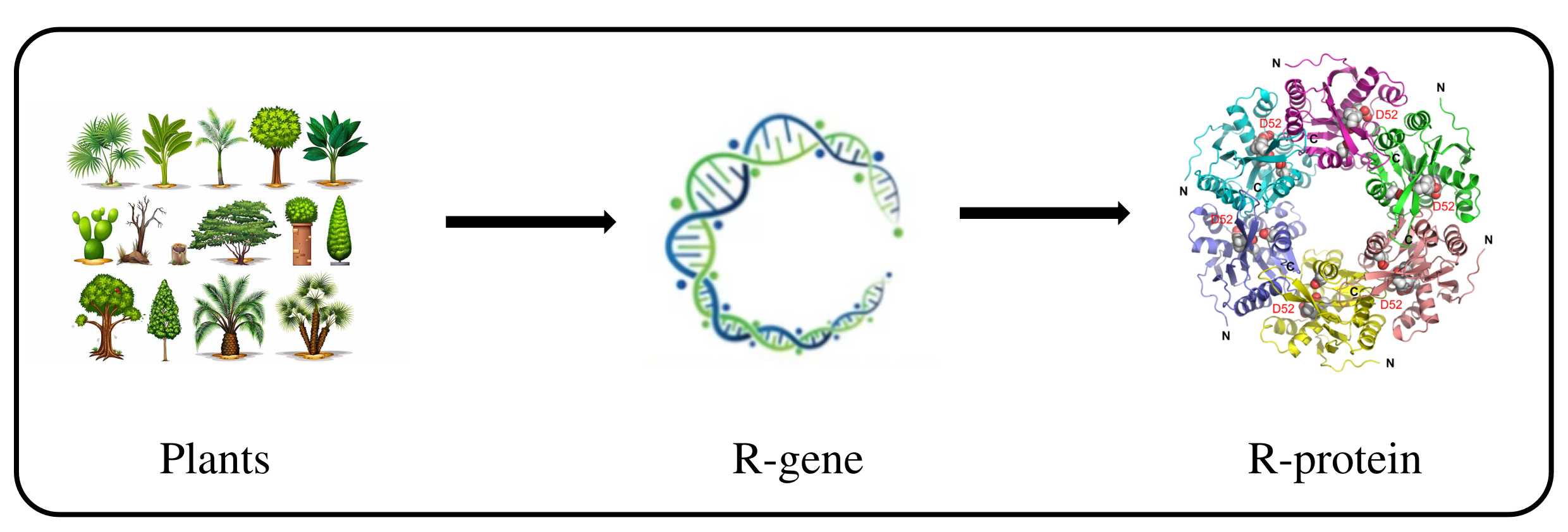What is PRGminer?

Plant resistance genes play an important role in plant defense mechanisms against various pathogens and pests. These plant-specific genes encode proteins that recognize specific molecular patterns associated with invading pathogens. When these resistance genes are activated, they set off a chain of molecular events that result in the activation of defense responses, such as the production of antimicrobial compounds, the reinforcement of cell walls, and the induction of programmed cell death in infected cells. Plant resistance genes are extremely diverse, with numerous classes and subclasses identified across various plant species. Each resistance gene typically recognizes a single pathogen or a group of pathogens that are closely related. This specificity is achieved by the encoded resistance protein recognizing pathogen-derived molecules known as effectors. The recognition of effectors by the resistance protein triggers a cascade of signaling events that eventually leads to the activation of defense responses and confers resistance to the plant.
Plant resistance gene classes
- Coiled-coil-NBS-LRR (CNL)
- Kinase (KIN)
- Lectin receptor-like kinase (LECRK)
- Lysin motif receptor kinase (LYK)
- Receptor like protein (RLP)
- Receptor-like kinase (RLK)
- Toil-inteleukin receptor domain(TIR)
- TIR-NB-LRR (TNL)


